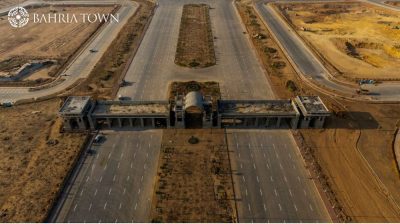“A responsible citizen is the one who pays the taxes on time,” this is a very common notion around the globe. However, in most countries, the word “Tax” is perceived quite negatively as it is thought to be a strategy used by the government to steal from the public.
In Pakistan, thoughts similar to these have been fueled after the recent political turmoil that has affected almost every aspect of the country. As paying taxes is thought to be uncommon in the country, therefore, the government has to rely on the International financial support system to work on the development projects and avoid bankruptcy.
Most of the financial help has been received from the International Monetary Fund which comes with a list of demands to be fulfilled and this practice has left the country on the brink of despair.
One of the most common demands made by the IMF is to achieve tax revenue of more than 7,000 Billion for the Federal Board of Revenue FY2022-23.
This amount has gradually increased to around 16.7 percent in comparison to the last year. Thus, to achieve such a number the government has no other choice than to impose taxes on almost everything.
A New Way to Collect Taxes
The Federal Board of Revenue (FBR) has a very important role when it comes to tax collection and policy making. Given the current situation of the country, it has proposed new ways of collecting taxes.
One of the proposed and implemented suggestions was to impose taxes on idle plots. The decision was criticized by a huge population as it has allowed only receiving a rent equal to 5% of the fair market value for their properties and not a single penny above that.
Although it was acknowledged that the collected tax will aid in developing infrastructure, paying salaries, and the existing burdening loan, still the decision was unacceptable for both the national citizens and overseas Pakistanis.
This is because imposing more taxes overburdens the citizens who are already living on the edge. According to the International Development Committee about 768,000 out of 190 million Pakistanis pay taxes, thus keeping this in mind government should widen the tax base instead of imposing further taxes.
The Indian Tax Act, 1961
The decision made by the Government of Pakistan is quite similar to the Indian Tax Act, 1961 which has focused on the different rules and regulations regarding levying, administering, collecting, and recovering income tax for the government. The various taxes also include the taxes on the income generated from house property.
Ending Note
Somehow, it looks like the policy was born in a state of confusion, keeping in mind the 18th amendment that removed the word capital gain from the 50th entry in the Federal Legislative List that enabled the Federal Legislature to levy taxes on the capital value of the assets without including the taxes that were already imposed upon its capital gain.
Removing these words means only one thing taxes cannot be imposed on immovable properties. However, taxes can be levied on capital gains by selling the land (immovable property).
This has left the land owners confused as well, who have to pay tax whether their property is being used for an income-generating purpose or not.
Furthermore, it is being said that this policy is to cater to the people who are not paying taxes as 0.57% of the country’s population are taxpayers and if this works, it will be beneficial for the country at a macro level.









